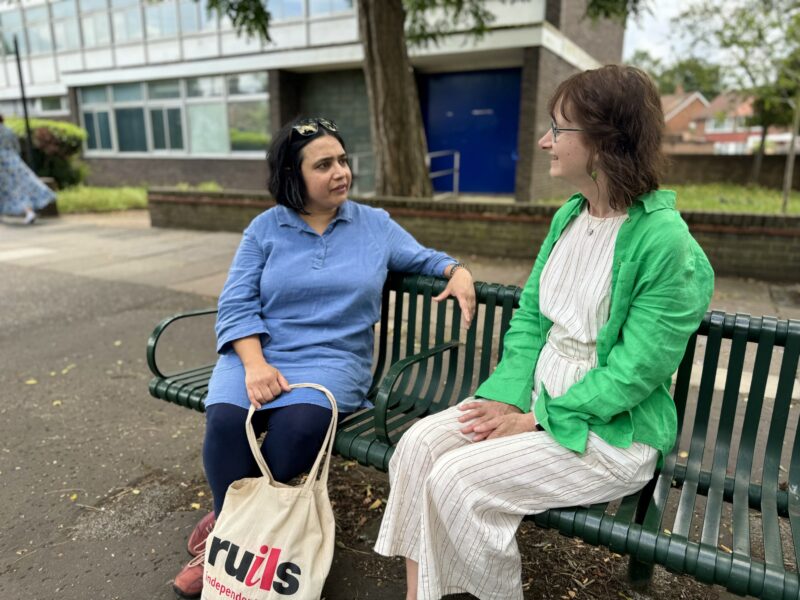Home > Hub article > Booking a Needs Assessment
Booking a Needs Assessment
Created: 26/06/2023, Bright Futures @Ruils
Who by? Bright Futures @Ruils
Why might it be of interest?
A young person applying to uni will need to undergo a needs assessment to determine what level of Disabled Student Allowance (DSA) they will receive and for what purpose.
To get the best outcome the young person will need to be prepared for the assessment and that will mean gathering evidence ahead of the assessment and thinking through what has worked (or not worked) for them in an educational setting previously.
Once SFE have considered your completed DSA form and looked at your supporting evidence, they will write to you and let you know if you are eligible for DSA and for which particular reasons as there may be more than one (eg for autism and dyspraxia). If you are eligible, you will need to have a Needs Assessment at an assessment centre. They will let you know where the centres are and you can choose one closest to where you live. You can then contact the Disability Advisor at your top choice university to ask for advice about this.
Booking will be online and you will need to select your preferred assessment centre, if more than one is available and your preferred day:
- Contact details: first and last names, address, email address, phone number, DoB
- About your disability: this might be ticking a box against a diagnosis or a free text box for you to describe your disability
- University details: name of university, name of course, Undergraduate or Postgraduate, full or part time, month and year starting / ending
- Funding body details: customer reference number, you may need to upload your DSA eligibility letter
- Supporting evidence: the medical evidence that you submitted to the funding body
- Other information: for example,
- have you had a Needs Assessment in the last 12 months
- BSL interpreter, access requirement
- Previous support received (eg extra time in exams)
- Previous equipment used (eg, computer specification, assistive technology)
- Can the assessment be observed
- Can information be shared with the university DSA team
If you cannot upload documents requested you are likely to be able to email them separately.
Prepare for your assessment
Think about:
- How has your diagnosis/needs impacted on your ability to study
- Study strategies you have used and how effective they have been
- Support you have had at school/college, eg in class support, support from the learning support department, additional time in exams
- What do you think you will find difficult
- What support will you need to study at university – think about how the course will be delivered and if you will need support with any aspect of that, eg will you need to do field trips and will you need support to do that?
- Equipment specifications (for what you use now at least)
- Is there any particular software or equipment you will need to use on your course
- Find out more about your course and university
- eg how will it be delivered
- what activities you will want to participate in
Make notes and take them with you to the assessment if you will need a memory prompt. If you have a social communication difficulty you may be able to request that you have a supporter with you (it could be a parent) but this is up to the assessor. Do speak to the assessment centre when you are booking the assessment.
You may be asked to complete a pre-assessment form about yourself ahead of the assessment. Complete it as comprehensively as possible. The assessment will take up to 2 hours. If you need someone to accompany you do let the assessment organisation know ahead of time.
Some may want to speak to the tutors at school/college who may have some suggestions about what they do extra for you to help you with your studies, and suggest you bring along some examples of your written work.
The assessment is an opportunity to have a informal chat with a qualified needs assessor, discussing your course and any potential issues you may face because of your disability and then discussing potential support.
After the assessment
- The assessor will produce a report which will be sent to you, the funding body and the university disability service if you gave consent
- Your funding body will write to you with details of your DSA and contact information to arrange equipment and non-medical support
- You must contact the providers to organise your equipment and support
You will not receive the benefit as cash itself, but will be told the allowance you will get for each section and how to order equipment and / or book support. Try to organise this ASAP so it is in place at the start of the term.
Get in touch with your first choice university to discuss Reasonable Adjustments. Universities are required to make and pay for certain reasonable adjustments which are not covered by DSA (eg transcriptions, reading, note-taking). There is no definitive or static list of what constitutes a Reasonable Adjustment so you must speak to your university.
Categories: Education & Employment, University
